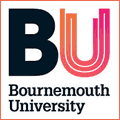BSc (Hons) Psychology in Education
-
Imparte:
-
Modalidad:Presencial
-
Precio:Unlimited number of Scholarships available for next academic year
UK/ROI/Channel Islands: £9,535 per year
International: £19,635 per year -
Comienzo:Septiembre 2026
-
Lugar:Bournemouth
Reino Unido -
Duración:3 Años
-
Titulación:BSc (Hons) Psychology in Education
Through research-inspired teaching and professional practice expertise, you’ll gain knowledge and understanding of how to apply psychological principles in an educational context.
Foundation Year: We have a Foundation Year option for students who do not meet the entry requirements for the degree course. This additional year of study will give you a grounding in the scientific skills required for Psychology, building your confidence, knowledge and skills for further study. After successful completion of the Foundation Year, you will progress to the full degree. If you apply to study the full degree and do not meet the academic entry requirements, our admissions team may consider your application for the Foundation Year and notify you accordingly.
This course requires 112–128 UCAS tariff points including a minimum of 2 A-levels or equivalent. We are happy to consider a combination of qualifications and grades to meet the overall tariff, for example A-levels A*BC, ABB, BBC or ACC, BTECs DDM or DMM. You can use the UCAS calculator to see how your qualifications equate to UCAS tariff points.
If English is not your first language you´ll need IELTS (Academic) 6.0 with a minimum of 5.5 in each of the four components or equivalent.
Develop a well-founded knowledge and critical understanding of the mind and behaviour through learning about all areas of Psychology with an Educational Psychology focus
Develop key transferable skills including critical thinking, project management, presentation skills and professional practice
Opportunity to take an optional summer 4-week or year-long 30-week placement in industry to give you essential real-world experience and develop a network of professional contacts
Work with world-leading researchers on projects through the Research Apprenticeship Scheme – a number of our students have published work with members of the staff in the Department of Psychology
Benefit from the Psychology department’s collaborations with local educational professionals (including Educational Psychologists, Speech and Language Therapists, and staff from mainstream and SEND schools), who will offer guest lectures on this course
Participate in practical activities, interactive assessments, coursework, and research using state-of-the-art facilities.
FOUNDATION YEAR OPTION
Academic and Professional Study Skills
Applied Sciences
Introduction to Biology
Introduction to Psychology
Mathematics in Science
Foundation Year Project
YEAR 1
Experimental Methods & Statistical Analysis
Qualitative Research Methods
Introduction to Educational Psychology
Biological & Cognitive Psychology
Social Psychology & Individual Differences
Developmental & Clinical Psychology
YEAR 2
Statistics & Research Methods
Research Methods & Analytics
Biological Psychology
Cognition & Language
Personality, Intelligence & Social Psychology
Developmental & Applied Educational Psychology
FINAL YEAR
Psychology Project
Optional Units:
Well-Being and Resilience in Schools: This unit involves critical discussions of key theories and research in positive psychology, and its applications in education.
Inclusion and Special Educational Needs and Disabilities: Explore a spectrum of topics encompassing diversity, labeling, inclusive education, and Special Educational Needs and Disabilities (SEND).
Forensic Psychology: This unit examines current research at the forefront of knowledge exploring the application of psychology in forensic contexts.
Emotions, Mental Health and Affective Neuroscience:This unit will explore the role of emotions in various mental illnesses and the link between emotions and cognition.
Applicied Clinical Psychology: Using current research and clinical experience, the emphasis will be on exploring therapeutic practice, investigating NHS, local authority and third-sector service provision, and understanding the role of service users and carers in recovery from mental illness.
Mind Over Matter in Medicine: This module will teach you an understanding of key issues in placebo, nocebo, hypnosis, suggestibility and clinical communication research. This includes learning about the experimental, medical and neuroscience techniques used as well as the theoretical constructs that seek to explain suggestibility.
Forensic Applications for Face Processing: Examines the psychological processing involved in face recognition within a forensic psychology context
Health Psychology: This unit will provide you with an understanding of the role of psychology in promoting health and well-being, and the impact of this as we grow older.
Cultural Psychology: This unit focuses on human behaviour and neural correlates of human mind across cultures, and the underlying theories. The cross-cultural difference of psychological phenomena will be highlighted in the context of a globalised, multiple-culture world.
Current Trends in Cognitive and Clinical Neuroscience: You will acquire comprehensive knowledge about the current trends in clinical and cognitive neuroscience as well as neuropsychological research and practice and related methodologies in order to be able to critically evaluate models and evidence in the research field.
Counselling Psychology: Using current research and practical experience, you’ll acquire an in-depth knowledge and understanding of the concepts and principles relating to real-world applications of counselling psychology.
Cybersecurity and Cyberwarfare: In this unit you will study and understand the psychological factors that determine how individuals engage with cybersecurity, either as targets, perpetrators, designers or practitioners.
Psychology of Social Media and Videogames: You will critically examine, evaluate and understand the impact of social media and videogames on individuals, groups, organisations and society, using psychological theories and methods.
Neuroimaging: Acquire in-depth knowledge of various neuroimaging and neuroscientific techniques, including practice.
As a Psychology graduate, you will be prepared to undertake roles such as:
Teaching Assistant
Assistant Psychologist
Mental Health Support Worker
HR Assistant

